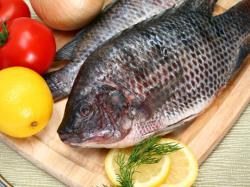First Honduras Tilapia Plant Earns BAP Certification
December 12, 2012 | 2 min to read

The Best Aquaculture Practices (BAP) program welcomes Aquafinca Saint Peter Fish SA as its first certified tilapia processing plant in Honduras.
Aquafinca Saint Peter Fish SA — which is located at San Francisco de Yojoa, Cortes, Honduras — is owned by the Regal Springs Tilapia Group. This is also the first Regal Springs’ facility to receive BAP certification. The Honduras operation includes a hatchery, growout farms, a processing plant and a fishmeal and biodiesel plant.
Built in 2003, the processing plant has an annual capacity of 30,000 metric tons whole weight equivalent. All fish are transported live from the farm to the processing plant. The farms are located near the processing plant (about 45 minutes away). There are two growout farms; both are floating-cage systems.
Aquafinca Saint Peter Fish produces fresh and frozen tilapia fillets, loins, portions and whole fish. It also uses all by-products generated in the processing plant to produce fishmeal, fish oil, biodiesel, skins and scales; 100 percent of the fish is utilized.
“We consider ourselves a socially and environmentally responsible group,” said Orlando Delgado, manager of Aquafinca Saint Peter Fish. “Our BAP certification is one more way of showing what we do for our communities and our environment.”
The U.S. market is the primary destination of the operation’s tilapia.
About BAP
Best Aquaculture Practices is an international certification program based on achievable, science-based and continuously improved performance standards for the entire aquaculture supply chain — farms, hatcheries, processing plants and feed mills — that assure healthful foods produced through environmentally and socially responsible means. BAP certification is based on independent audits that evaluate compliance with the BAP standards developed by the Global Aquaculture Alliance. For more information on BAP, visit www.gaalliance.org/bap.
Source: Global Aquaculture Alliance
